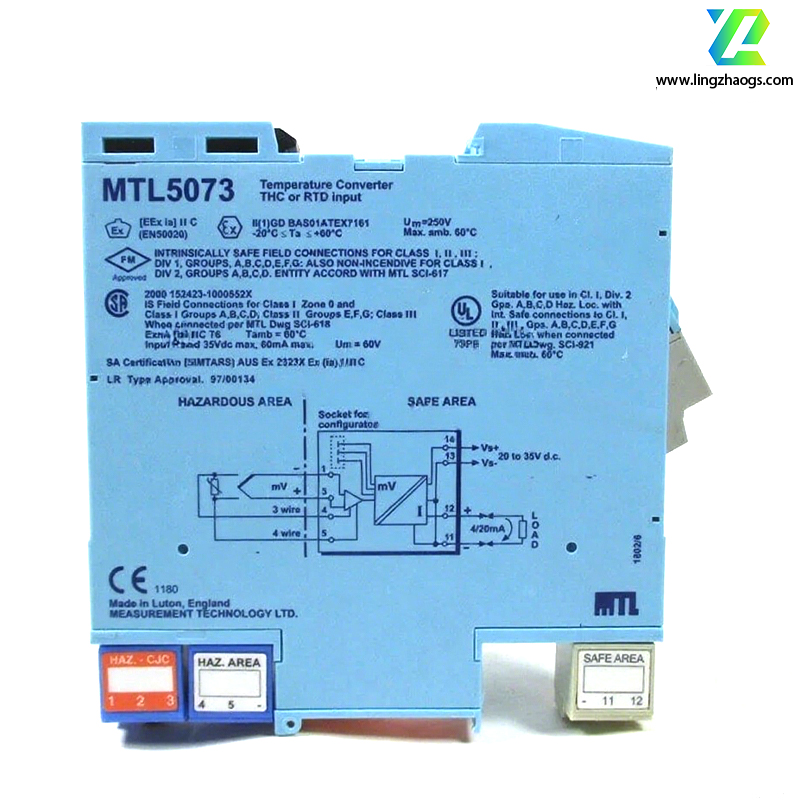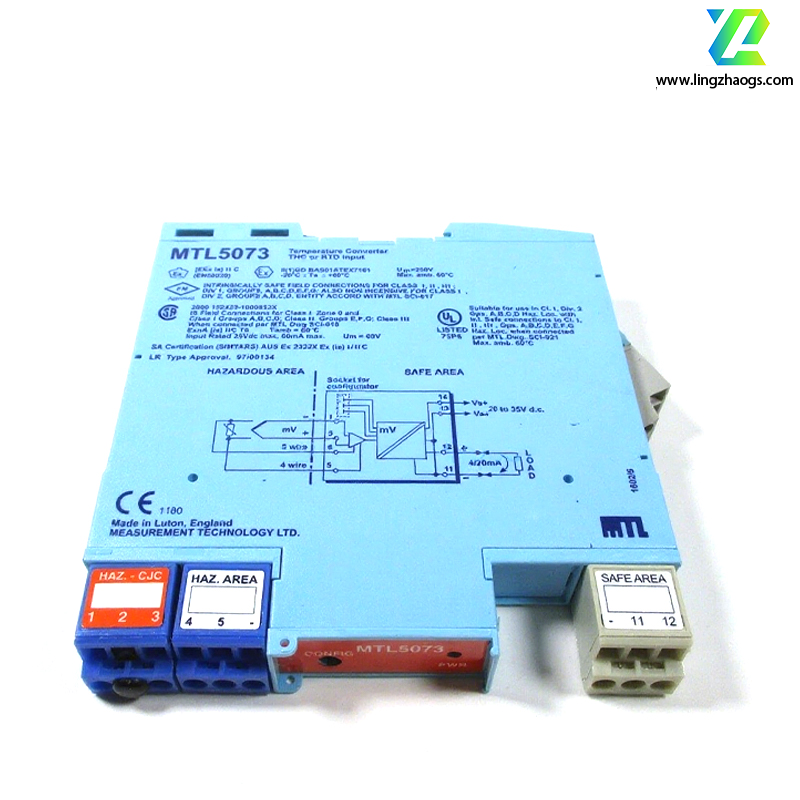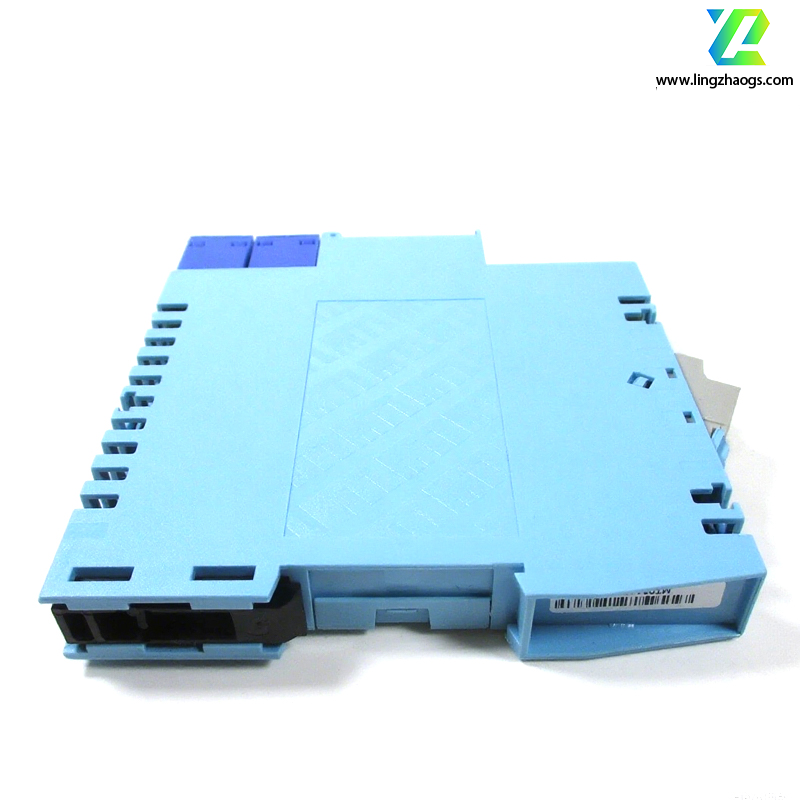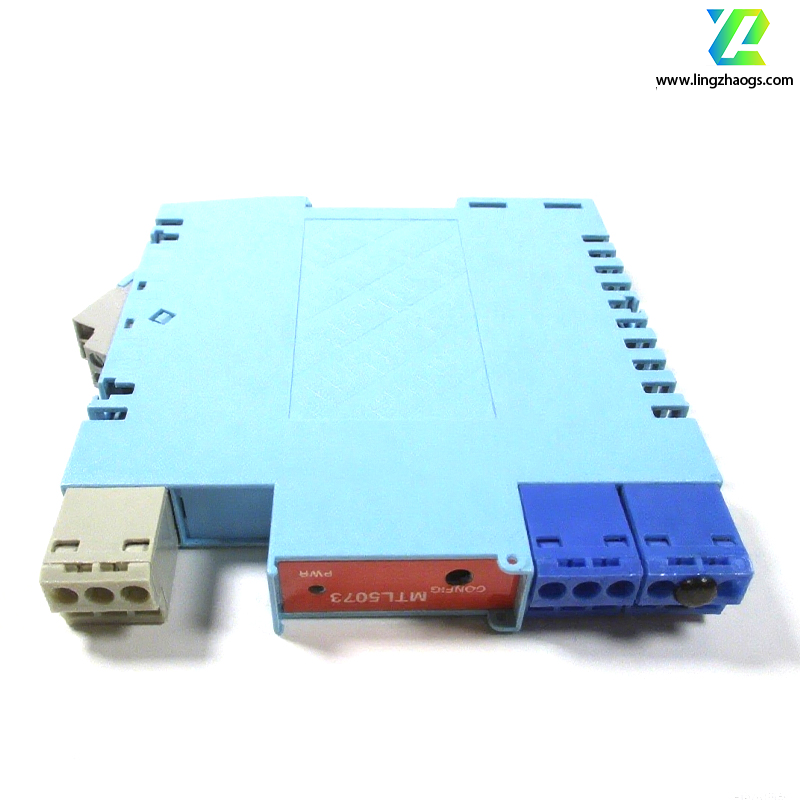MTL5073 is a temperature transmitter isolation safety barrier. The detailed information is as follows:
It can convert low-level DC signals from temperature sensors in hazardous areas into 4-20mA current, which is used to drive loads in safe areas.
- Input Type: The input type can be selected via software, supporting all thermocouple types and 2-wire, 3-wire, 4-wire RTD types.
- Output: 4-20mA current signal
- Isolation Voltage: Typically up to approximately 250V.
- Conversion Accuracy: Features high-precision output conversion performance, with accurate output within the range of ±0.1% of the full scale.
- The input temperature range is wide, generally from -200℃ to +850℃, and can also support other measurement ranges such as 0-1000℃ (0-1832°F).
Operating temperature range: -25℃ to +80℃ (-13°F to +176°F)
Operating voltage: Generally 15-30V DC
- Equipped with sensor fail-safe drive function, which can be set to overrange, underrange, or off.
- Supports early burnout detection for thermocouples; an indication is triggered when the loop resistance increases by >50Ω.
- For thermocouple input: The maximum lead resistance is 600Ω when the sensor fail-safe drive is enabled, and >10kΩ when disabled.
- Parameter configuration can be performed via a personal computer, and operations such as linearization, range setting, monitoring, testing, and tag marking can also be implemented.
- RTD (Resistance Temperature Detector): The international standard name for resistance temperature detectors, a common temperature-sensing element that converts temperature changes into resistance changes; "2-wire/3-wire/4-wire" refers to different wiring modes of RTDs, where 4-wire RTDs have the highest measurement accuracy (eliminating lead resistance interference).
- Fail-Safe Drive: A safety function in industrial control devices. When a sensor fault (e.g., thermocouple wire breakage, RTD short circuit) occurs, the device automatically drives the output to a preset safe state (overrange/underrange/off) to prevent misjudgment of the control system (e.g., DCS) and ensure production safety.
- Thermocouple Burnout Detection: A protection function for thermocouples. When the thermocouple is overheated or damaged (leading to increased loop resistance), the device detects the resistance change and sends an alarm signal, facilitating timely maintenance of the sensor.
- Full Scale (FS): A common term in industrial measurement, referring to the maximum range of the instrument (e.g., if the temperature measurement range is 0-1000℃, the full scale is 1000℃); "±0.1% FS" means the maximum measurement error does not exceed 0.1% of the full scale (i.e., ±1℃ for 0-1000℃ range).







